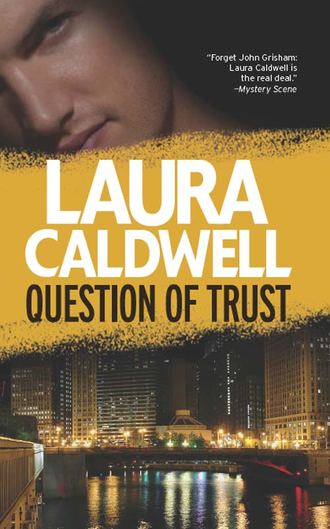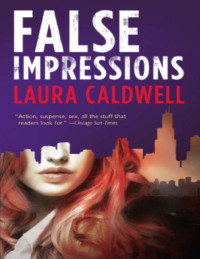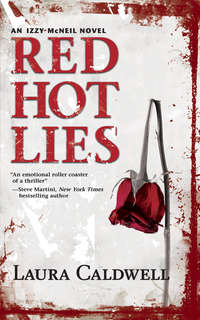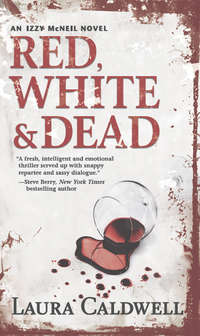
Полная версия
Question of Trust
He slammed his hand again, right as the door opened. “I told you never to just walk in,” he barked at the new restaurant general manager.
The man didn’t respond. Instead, he left, closed the door, knocked and then reentered.
“What?” José said in a demanding bark.
“The eggs that were delivered are spoiled. We’ll need more to get through the week,” the manager said with urgency.
He glared. This restaurant was not his identity. It was a front, like so many others the family had. He crooked his finger at the man, who came closer. Then he did it once more, slowly bending and extending and bending his finger in a methodical way. When the manager was close to the desk, he spoke in a low tone, threateningly. “If you can’t handle these issues, someone else will,” he said simply. “Do you get that?”
The manager had the audacity to return the glare before he backed out of the room.
As the door closed, he slammed his hand flat on the desk once more. It disgusted him that he continued to have such discussions with his underlings. But a “discussion” was not required with the people running that business, a business that was running off with his family’s money. No, something much, much more than discussion was necessary.
5
“Ms. Granger? Mr. Reynolds will see you now.”
I slid carefully out of my seat and smoothed the front of my pencil skirt. I undid one more button of my shirt to allow ample cleavage to show and made sure the tiny camera in my necklace was still pointing forward. After one last check in the mirror, I strutted my stuff across the bank lobby.
All right, Izzy, I thought to myself. Let’s do this.
Mayburn did a lot of work for banks. Sometimes the cases he worked were huge and complex—big-scale bank fraud and money laundering and such—requiring me to do something dangerous like invade someone’s home computer to download information. (Naturally, Mayburn always undersold such jobs, letting me figure out for myself—usually right when I was about to get caught—how much bigger and potentially threatening the situation was than I’d thought.)
Tatum Reynolds’s office was about as typical as they came. One Plexiglas wall looked onto the bank. The rest of the walls were gray, the carpet blue, the desk and bookshelves black metal. Mayburn had told me the bank hired him to prove Reynolds was hoarding enrollment incentives that were supposed to be given to all new clients. When a number of his clients complained they never saw the money they were promised, the bank suspected that Tatum was depositing the money into his own bank account. However, the transactions couldn’t be proven, and after watching him, Mayburn and the bank came to believe that he might be taking the money and then giving large sums to “special” clients. All the “special” clients were pretty women with almost no money to deposit into their new account. That’s where I came in. I was supposed to open an account with fifty bucks. If he failed to give me the hundred-dollar incentive, we had him. If he tried to offer me more, we had him. For once, Mayburn might have been right. This was going to be easy.
“Ms. Granger, welcome to Chicagoland Bank and Trust,” Reynolds said. “I understand you want to open an account?”
He was thin and pale and much younger than I anticipated. His voice had a squeak to it. If I didn’t know better, I’d say this guy was a teenager, not a late-twenties, thieving bank manager. He had a bowl cut, for goodness’ sake.
“Yeah, I want a checking account. One of those online ones,” I answered, affecting a nasally voice. Was the fake voice a part of the undercover assignment? No. But I couldn’t help myself.
“We can certainly help you with that.” He gave me a crooked smile.
For the next twenty minutes, I listened to Reynolds give me options on checking accounts, savings accounts, credit cards and investments, but no mention of the cash incentive. I did my best to play my part and noted with pleasure that he glanced down my blouse, where the necklace hung, quite a few times. He even blushed a little when I laughed at one of his jokes. I handed him the ID that Mayburn had given me and started signing the paperwork.
“You know,” he mumbled, “our bank offers an incentive program.”
I lowered the pen slowly. “Really? What’s that mean?”
“Well …” He cleared his throat. “There’s this really nice restaurant around the corner. It’s a French place called Tru.”
Tru was one of the most touted and expensive restaurants in Chicago. Where was this going?
“We could … ah … go there,” he stammered, his eyes firmly planted on his left cuff link.
I blinked at him. Did he just ask me out on a date?
“You see,” he continued, “our bank offers you two hundred dollars toward a dinner at Tru for opening an account with us. It’s impossible to get a reservation, but I know a guy who lets me in whenever I want.”
I know a guy. Such a Chicago thing to say. The city had a strange but wonderful pride that involved being able to help others. Sometimes this was meant to make the helper feel better about himself. Sometimes it was more altruistic. But almost always the phrase I got a guy (or some variation thereof) came into play as the person offered a connection to make it all better—a plumber who would show up in an hour and stop your basement from flooding; the cop who would arrive in minutes, assess the situation and then leave if you didn’t want to go through the hassle of a police report; a doctor who normally had a three-month waiting list, but who would get you in as a special favor to the one who said I got a guy.
“So if you wanted the incentive,” Tatum said, “I could get you in.”
Wow. Tatum was using the incentive money not just to impress women, but also to pay for a date? At Tru? Thank God the necklace cam was getting all of this or no one would believe me. (And thankfully Mayburn and my dad would be paying the tab on this job if they wanted to keep it going, because two hundred dollars wouldn’t buy much at Tru.)
Reynolds was staring at me with something akin to blind fear in his eyes, and for a second I felt sorry for him. But then I remembered I had a job to do.
“I’d love to, Tatum.”
At the sound of his name, his entire face exploded into an ear-to-ear smile. “Great! I’ll get the paperwork going.”
After saying goodbye to Tatum Reynolds, I made my way to the café across the street. Mayburn and my father had set up shop there so they could watch the feed from my necklace camera on a laptop. I weaved through the tables and to the back booth.
My father gave me a curt nod in greeting and Mayburn mumbled what was barely discernable as a salutation. It might have been my imagination, or the lighting in the coffee shop, but Mayburn looked a little red.
“Did you get all that?” I asked, trying to get a read on the situation between the two of them.
“Yeah, we got it,” Mayburn answered. “He offered you the money … to take you … out on a date….” Then he burst out laughing. His face turned more apple-red, his breathing came in gasps and tears sprung from his eyes. Even my father chuckled a little.
My father rarely laughed and Mayburn didn’t, either, not since he’d fallen in love and then broken up with a woman named Lucy DeSanto. I tapped my foot and waited. When the guffawing finally died down, Mayburn was completely out of breath, and I couldn’t help but smile a little.
“You did good, McNeil,” he finally managed to say.
“Poor kid,” my father said. “Tatum Reynolds might go to prison because he wanted a girlfriend.”
“The reason doesn’t concern us, Christopher. I just need to figure out how to tell the bank owners without cracking a smile.” Mayburn bit his lower lip then launched into another fit of hysterics.
“All right, gentlemen,” I said as I took off the necklace camera and set it on the table. “I’ve got to go.”
“Later, McNeil,” Mayburn said, finally managing to compose himself.
“’Bye, Boo,” my dad said, using his nickname for me. When I stood, he stood with me. “Everything all right?”
“Yeah, sure. You?”
He nodded but looked at my face with a concerned expression. “You can tell me if you ever want help. If anything isn’t all right.”
“Okay … Thanks.” I tried to think whether the cryptic remark meant anything. But my dad was new to Chicago, new to our family again. I figured he was just trying to get his sea legs, so to speak.
I looked at my father and allowed a small smile. It was good that he was working with Mayburn. It was good that he was loosening up a little. And I had to admit, it was good that he was in my life again.
6
“I don’t understand,” I heard Theo say, his voice pained. “Why would that be?”
Something was wrong. And on the day we were moving in together—well, not exactly moving in—Theo had decided to buy the place by the Green Door (offering nearly the entire asking price just so he could “avoid all bullshit”), and we figured that Theo might as well stay with me in the short-term since his apartment lease was up.
And so, a few uneventful days after my meeting with Tatum Reynolds, I left Bristol & Associates a little early and climbed the stairs to the “L” platform, heading home so I could help Theo situate his stuff in my condo. (I was also attempting to make sure he did not situate any of said stuff in places I didn’t want it.) Also, I needed the time to think; to process the fact that someone was moving in with me. I adored Theo, craved him, couldn’t believe how in tune he was with me when we were together, so dialed in, in a way that Sam hadn’t been. It was thrilling. It was scary. But I loved him, I reminded myself. Yeah, but you don’t know if he returns the sentiment.
The “L” train rumbled around the corner at Lake and Wabash, and I moved over for someone to sit next to me.
No reason for too much analysis, Izzy. I reminded myself that Theo and I moving in together was a temporary thing.
It was a chilly, sunny November day. As I rode the “L,” listening to its wheels screech awkwardly at stops, I let my mind meander into other things. I thought about how I missed my Vespa scooter, which I’d had to retire for the winter. I thought about Thanksgiving coming up in two weeks. I planned to go to my mom and Spence’s place, as I always did. For some reason, Theo and I hadn’t talked about what he was doing. Should I invite him to join? The fact that we were temporarily moving in together already seemed momentous enough.
When I got home, a nearly empty moving van was out front.
The numbered keypad outside the front door of the three-flat complex had been disabled by someone with the code; I could tell just by glancing at the display because I had overseen the installation of the keyless entry systems on the front door as well as the door to my condo on the third floor. (Okay, Mayburn had done the overseeing for me while I watched him watch the locksmith.) When it was first installed, we guarded the front-door code like the sphinx. But changing the code frequently quickly got cumbersome. First, my ground-floor neighbor sold his place, requiring visits of about fifty real-estate agents a week. Then my second-floor neighbor decided to rent his condo, and that allowed hordes of apartment hunters to roam the place. And now that Theo was moving in, with his buddies helping him and his moving vans, someone had given up the fight and disabled the keypad altogether. I really couldn’t blame them.
I made my way up the three flights of stairs—the only downside to my condo. When I’d reached the third floor, the door to the apartment was blocked with boxes. I’d managed to stick my head in the door when I heard Theo speak in a strained voice, a voice I’d never heard before. “I don’t understand,” he said.
A pause, as Theo listened to whomever he was talking to. “But why?” He sounded distressed. “Why would it be that low?” he continued. “I told you last night, I’ve never bought property before. All I’ve had are two credit cards.” Another pause. “Yeah, well, I guess that could be it but …”
As his voice died away, some kind of trepidation said hello to my psyche.
“The business has some kind of trust account,” he said. “Could we use that to get credit or cash?” A pause. “No, it’s a foreign trust. I don’t know much about it, but I could …” An exhale. Another moment of silence. “Oh, okay, so then …” Quiet. “Really?” I heard him say. He sounded now not so much distressed, but like a young man surprised at terrible news.
I hated to hear it. I nudged the door to shove aside the boxes and stepped inside.
Theo stood at the bar of my European-style kitchen, his hair pulled back away from his face, wearing an army-green T-shirt and jeans. He turned as I came in. He threw me a polite smile, as if to say, One minute. Or maybe, Everything is fine here. Yet I could tell it wasn’t.
“All right,” he said. “Yeah, talk to you then.”
I picked my way through boxes, across the room and gave him a hug. “Who was that?”
He held me longer than usual. His back muscles felt taut.
I looked up at him. “Everything okay?”
His brow furrowed. “That was Barb. The real-estate agent. She did a pre-application for my mortgage, and it was …” More furrowing. “It was denied.”
“You’re kidding?” Theo had money. A lot of it, as far as I knew. He and his partner, Eric, started their company—HeadFirst—while in college. HeadFirst’s software allowed people to create their own artistically beautiful websites. The company had performed—overperformed—beyond anything anyone expected, according to the frequent press about the company. Theo and Eric had left college and never looked back, walking into a dream life of travel, private planes and a constantly growing business.
Theo shook his head, still distracted, which was so very unlike his usual life state.
I kept my arms around his back, but I leaned away so I could see him better. “I heard you saying you really hadn’t owned anything yet. Maybe your credit isn’t extensive enough. Especially for the prices you’re looking at.” None of the houses that Theo had viewed had been less than a million dollars, and the one he’d decided upon was almost three times that. “Maybe you need to take out credit cards and then pay them off, that kind of thing?”
He shook his head. “She said there should be a high enough credit score, given my income. Also, I’ve had two credit cards, and I always pay them on time. I’ve never been delinquent on any bills.”
“Well then, what is it? What did she say was bringing your score down?”
“She couldn’t tell from the report. She’s going to have her contact at a credit bureau look into it.” The muscles in his back loosened a little, and he let me go, yet his expression remained stiff. “Right now, she said there’s no way I’ll be able to get a mortgage.”
Who is this guy? The thought boomed in my brain without introduction, without warning. And I could feel the question in my body, too—a wariness that took up residence somewhere deep inside and crossed its arms.
We both looked around my apartment at his stacks of books, piles of boxes, laundry baskets overflowing with jeans and shoes. We both knew that, as we stood there, a new tenant was moving into Theo’s old apartment.
I realized then Theo was staying with me a little longer than I’d thought.
Tick, tick, tick went the silence. It was, I realized, an old clock my mother had given me years ago in college. I’d never noticed the sound before.
“You want to go out for a drink?” I said.
He nodded fast.
Within fifteen minutes, we were seated at the bar at Topo Gigio, an Italian place on Wells. Thirty minutes after that, we were in high spirits, the owner having sent a bottle of champagne after hearing that we’d just moved in together. Soon, we were making plans for Theo’s condo, drawing game-room and bedroom designs on napkins and searching our phones for photos of furniture he could buy.
“Whenever you move to your new place,” I said, “it doesn’t matter.”
“We are what matters, right?” Theo said, leaning toward me, moving his bar stool over.
“Exactly.” I stared into those eyes, nearly breathless in his presence, the whole of him. Any irrational slices of fear were no longer cutting me.
An excited look took over Theo’s face. “I just remembered,” he said. “I have a folder of pictures from magazines that I’ve been ripping out. You know, from home magazines?”
“You’ve been reading home magazines?” I adored him even more, suddenly.
“Yeah, well, my mom bought me a bunch of them. And I just remembered. I’ve got pictures of beds, and oh, these kick-ass chairs for a TV room.” He looked so excited then. “Let me run back and get them.”
“No, let’s just go,” I said, but right then, the bartender delivered the three plates of appetizers we’d ordered.
“It’s a few blocks,” Theo said. He pointed at the appetizers. “You start on these, and I’ll be right back.”
I watched him walk from the room, watched everyone else stare at him as they always did. As always, he didn’t notice.
“I love you,” I whispered. I was sure about it then, sure that he would return the sentiment. “I love you,” I said, trying the words again. And it was then I decided I would tell him as soon as he came back.
But a few minutes later, he was calling my phone.
“Hey,” I said softly, without having to say another word. Because I felt like every word I would say to Theo now would carry those three words in it.
“We had a break-in,” he said.
My mouth opened and closed. In front of me, the bartender told an apparently hilarious story, because the two people listening threw their heads back, their mouths open. But I couldn’t hear anything.
“Back the truck up,” I said into the phone, still trying to meet the anti-swearing campaign goals I’d set last year, despite the situation. “What did you say?”
“You need to come home,” Theo said. “Someone broke into your place.”
7
When I got home, the downstairs door was closed, the keypad still enabled since we’d turned it on before we left for Topo Gigio and Theo had obviously used the code to get in. So then how had someone broken into my place?
I took the stairs fast to the third floor, then stopped when I reached my door. Immediately, my eyes drew down to the keypad. The cover of that panel had been pried off, exposing the wires inside.
I felt something like fear sweep a cold brush over my body. I stopped and thought about the entry system. Many people knew the password to the keypad downstairs. But the keypad to my own condo was known to only a few. Theo was one of the few people who knew it, along with my mom and Q. Apparently whoever broke in didn’t have the code. Or wanted to make it look like they didn’t.
I pushed open the door and stepped into the living room. My eyes moved over the fireplace, looked at the coffee table, where mounds of Theo’s belongings were stacked. I let my gaze scan the couch, the yellow-and-white chair that was my favorite piece of furniture in the house. I looked into the kitchen. The bar counter with the two stools in front appeared the same as when we left it—piled with towels and sheets of Theo’s.
“Izzy?” I heard a voice that sounded like Theo but also a little like someone else.
I jumped, flinching in spite of myself.
Theo stepped into the room. “Iz. Hey. I came home and saw the door panel all fucked up.”
“Are you okay? Was anyone here?”
He shook his head.
“Was anything taken?”
“I was just going through the place, and it doesn’t look like it, but it’s hard to tell, you know? Since I just moved in.” He waved his hand behind him toward the hallway, which was filled with boxes. “And I wouldn’t really know if anything of yours was taken.” It seemed, then, we knew so little of each other.
“You must have been scared,” I said.
He shrugged.
I went to him. “Are you okay?”
He wrapped me in those arms, and I smelled that Theo smell—there it was.
“Did you call the cops?” His shirt, made of a soft fabric that could almost make me think nothing was wrong, muffled my words.
The answer came in a rap on the door. Then another rap. “Chicago police.”
The responding officers listened to our tale while their radios squawked.
“You’re a lawyer, Ms. McNeil?” Officer Potowski asked me.
I nodded. “Yes. Criminal law. With Bristol & Associates.”
“That’s a good firm. High profile. You guys get a lot of publicity.”
I nodded again. Since Q had arrived at Bristol & Associates, we had gotten even more. Q loved a good press release.
“Since nothing is missing,” the officer said, “this is technically just a B and E. A misdemeanor at best. There are no prints on the doors or number locks, either. We’ll file the report, but we can file it closed if you want. And we’ll just check in with you in a little bit—tomorrow or the next day—to make sure everything’s okay. What do you think?”
I almost told them to close the case. I had explained to the cops that I’d been the subject of intense scrutiny from the media before, a place I distinctly did not want to go again. A closed case would be one of the best ways to keep the media’s nose out of our business.
But then a lick of fear swept over me again. Of what? It had something to do with a feeling that this—whatever this was—was not done yet. I looked at Theo. Strange that this had happened tonight, when he moved in.
“Leave the case open, please,” I said to the officer. “And yes. Please check in on us.”
8
Twin Anchors was known for its ribs, but neither person who sat at the middle of the bar was hungry. The restaurant was also known for its love of Frank Sinatra and the fact that Old Blue Eyes had been in that very joint on more than one occasion.
A guy who called himself Freddie (he’d all but forgotten his real name) ordered a glass of Scotch.
His partner asked the bartender if he knew how to make something called a Michelada.
The bartender not only looked stumped, but he also said, “Huh,” then again, “huh.” He looked behind him, as if for backup. “I just took bartending school. I don’t remember that.”
“Don’t worry about it.” A Tecate beer was ordered instead.
They took a few sips, companionably sitting next to each other, not needing to speak right away.
The bartender returned. Apparently, someone at bartending school must have told him that chatting with the customers, whether they wanted to or not, would bring hundreds in tips. The guy pointed at some photos and articles pasted and shellacked behind the bar. “Those are all about Sinatra,” he said. “And the guy from Chicago who wrote a book about him.”
“So fucking what?” Freddie said, taking a sip of his Scotch. The guy had no idea that in Freddie’s past, he had waited in alleys and cut people for reasons much less serious than bugging the fuck out of him.
“It’s true,” his partner said, who was apparently smart enough to sense his menace. “The Chairman of the Board used to hang out here. On occasion. We all know that. Thanks.”
Freddie made a single motion with his hand, shooing away the bartender.
The bartender gulped and had the sense to turn around and start rearranging a wine refrigerator.
A moment passed. “So you think they’re freaked out?”
“Hope so,” Freddie said.
“Do you think they’ll get it?”
“Yeah, I think they’ll get it. Left the downstairs entry system enabled. Let ‘em know it’s not so hard to find out their little code.” That was true, for him; he’d worked for the National Fire Alarm & Burglar Association and the Electronic Security Association just to learn how to master every kind of alarm. “Then messed up the panel by her door. Tells ‘em we can get in, easy. They’ll get that. They’re smart. She’s a lawyer, and he handles his own company.”









